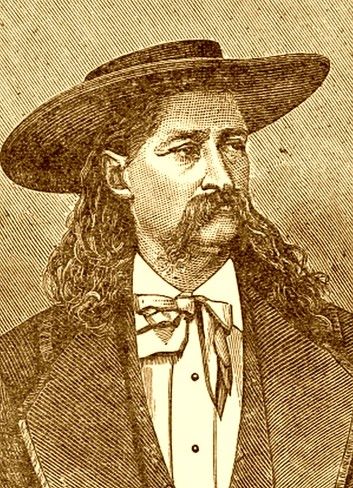| FindBook |
有 1 項符合
LIFE AND MARVELOUS ADVENTURES OF WILD BILL的圖書 |
 |
LIFE AND MARVELOUS ADVENTURES OF WILD BILL 作者:J. W. BUEL 出版社:Liongate Press 出版日期:2014-11-02 語言:英文 |
| 圖書館借閱 |
| 國家圖書館 | 全國圖書書目資訊網 | 國立公共資訊圖書館 | 電子書服務平台 | MetaCat 跨館整合查詢 |
| 臺北市立圖書館 | 新北市立圖書館 | 基隆市公共圖書館 | 桃園市立圖書館 | 新竹縣公共圖書館 |
| 苗栗縣立圖書館 | 臺中市立圖書館 | 彰化縣公共圖書館 | 南投縣文化局 | 雲林縣公共圖書館 |
| 嘉義縣圖書館 | 臺南市立圖書館 | 高雄市立圖書館 | 屏東縣公共圖書館 | 宜蘭縣公共圖書館 |
| 花蓮縣文化局 | 臺東縣文化處 |
|
|
WILD BILL, as a frontier character of the daring, cunning and honorable class, stands alone, without a prototype; his originality is as conspicuous as his remarkable escapades. He was desperate without being a desperado; a fighter without that disposition which invites danger or craves the excitement of an encounter. He killed many men, but in every instance it was either in self-defense or in the prosecution of a duty which he deemed justifiable. Wild Bill was a necessary character in the Far West during the period which marked his career. He was essentially a civilizer, in the sense of a vigilance posse. The law and order class found in him an effective agent for the correction of the lawless; it was fighting the desperate with one of their kind, and Bill had the cunning to remain on the side of society and to always flank his enemies.
It would require a volume to moralize upon the deeds of this remarkable man as they deserve, for his desperate encounters find a parallel only in the atmospheric changes which abate an epidemic. When Bill drew his pistol there was always one less desperado to harass the law-abiding, and his presence served to allay the hunger of cut-throats and rapacious plunderers. As a fighter, he had no equal; as a pistol shot, none could excel him; as a scout in the service of his country, there were none more faithful, daring and serviceable; with a disposition as gentle as a zephyr, but a determination stronger than the hurricane. Never a boaster; always deferential to those who might differ from him in opinion; a man of strong friendships and little enmity. Such were the marked characteristics of him whose memory is deserving of perpetuation, and whose wonderful exploits it is the purpose of the writer to describe. The half cannot be told, because of the subject’s secretive disposition, and extreme dislike to reciting his own adventures. That which is herewith given is absolutely true in every particular, without a single shading of fiction or extravagance, and may confidently be accepted as truthful history.
J. W. BUEL.
|










